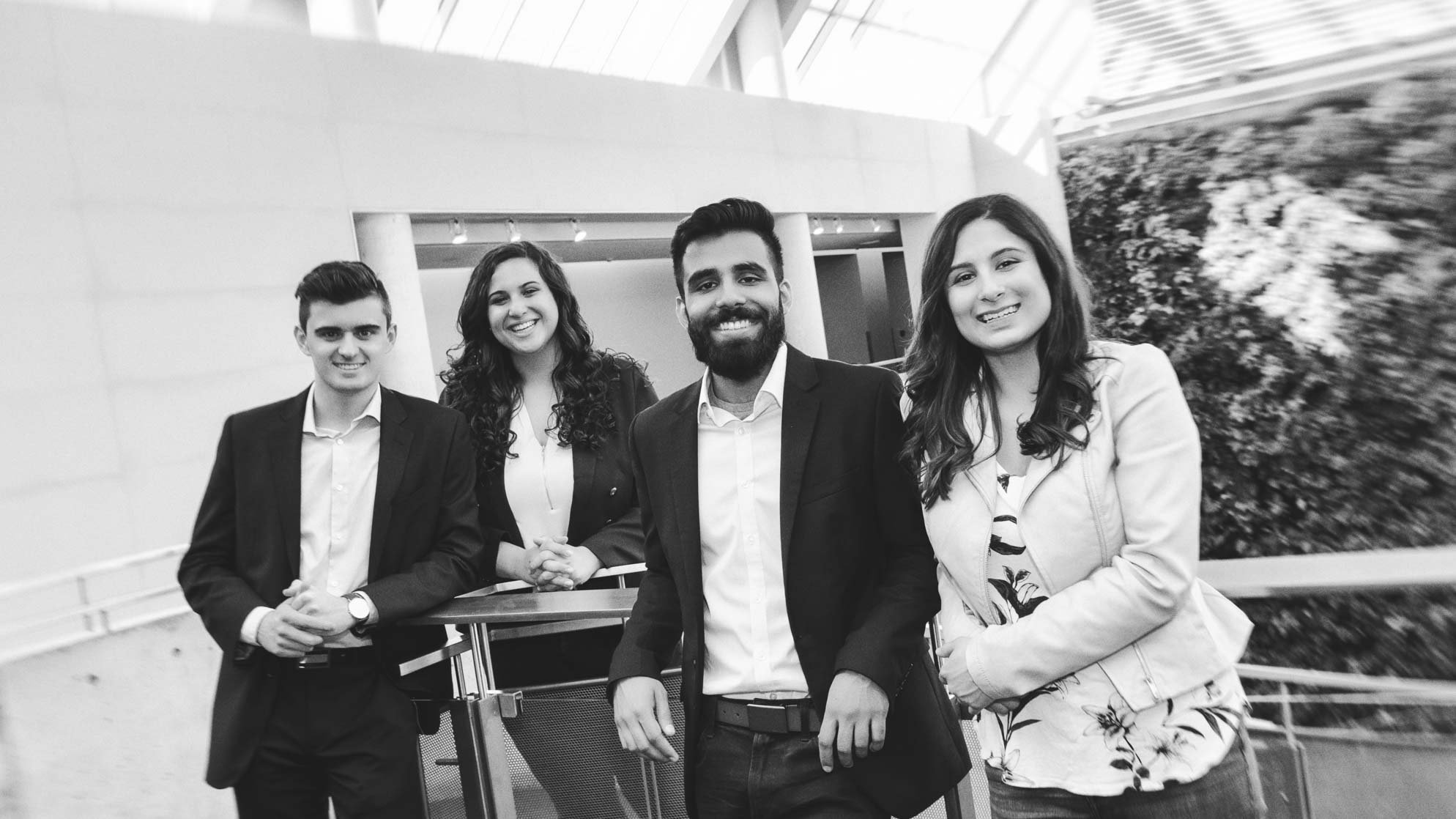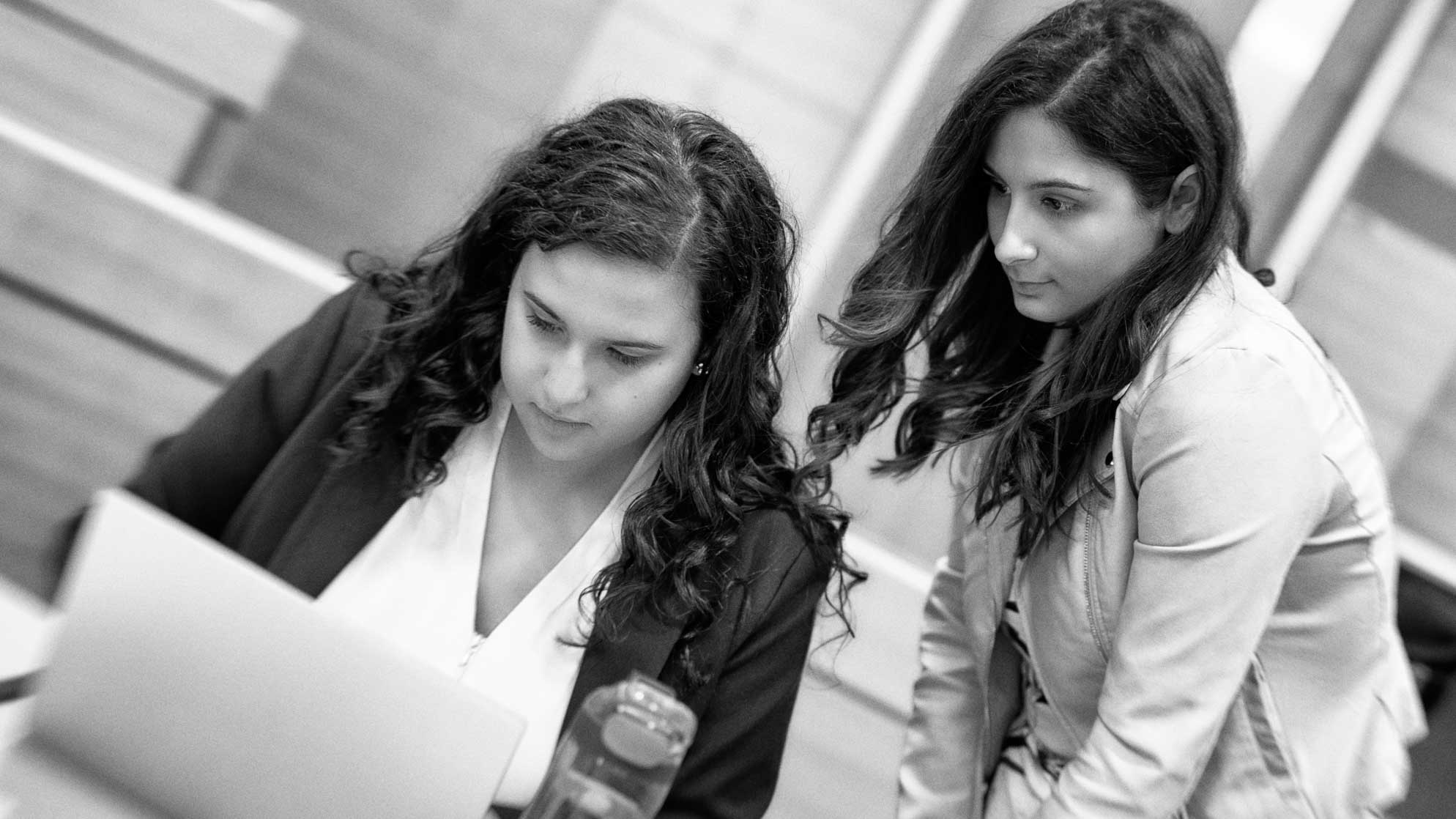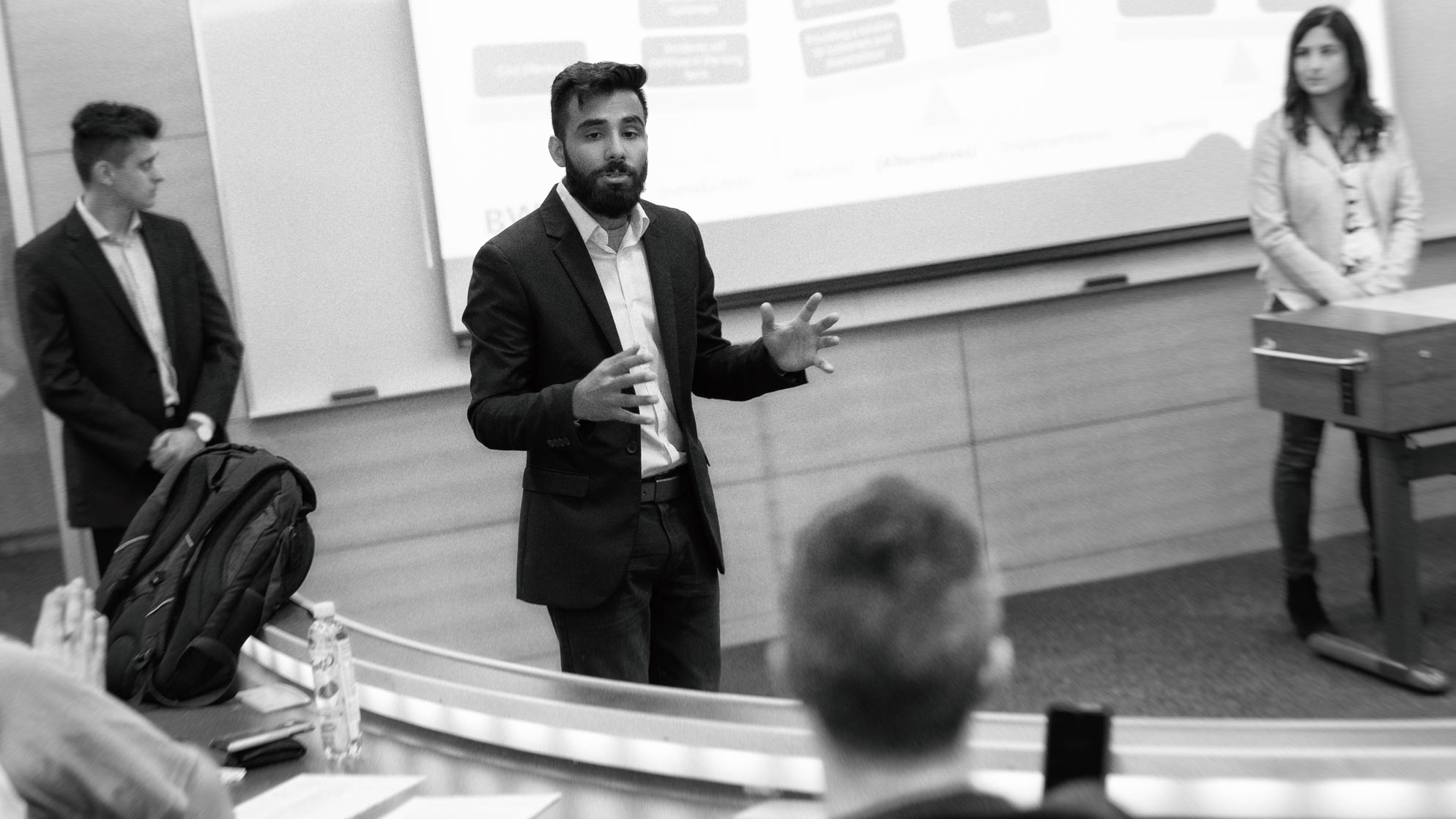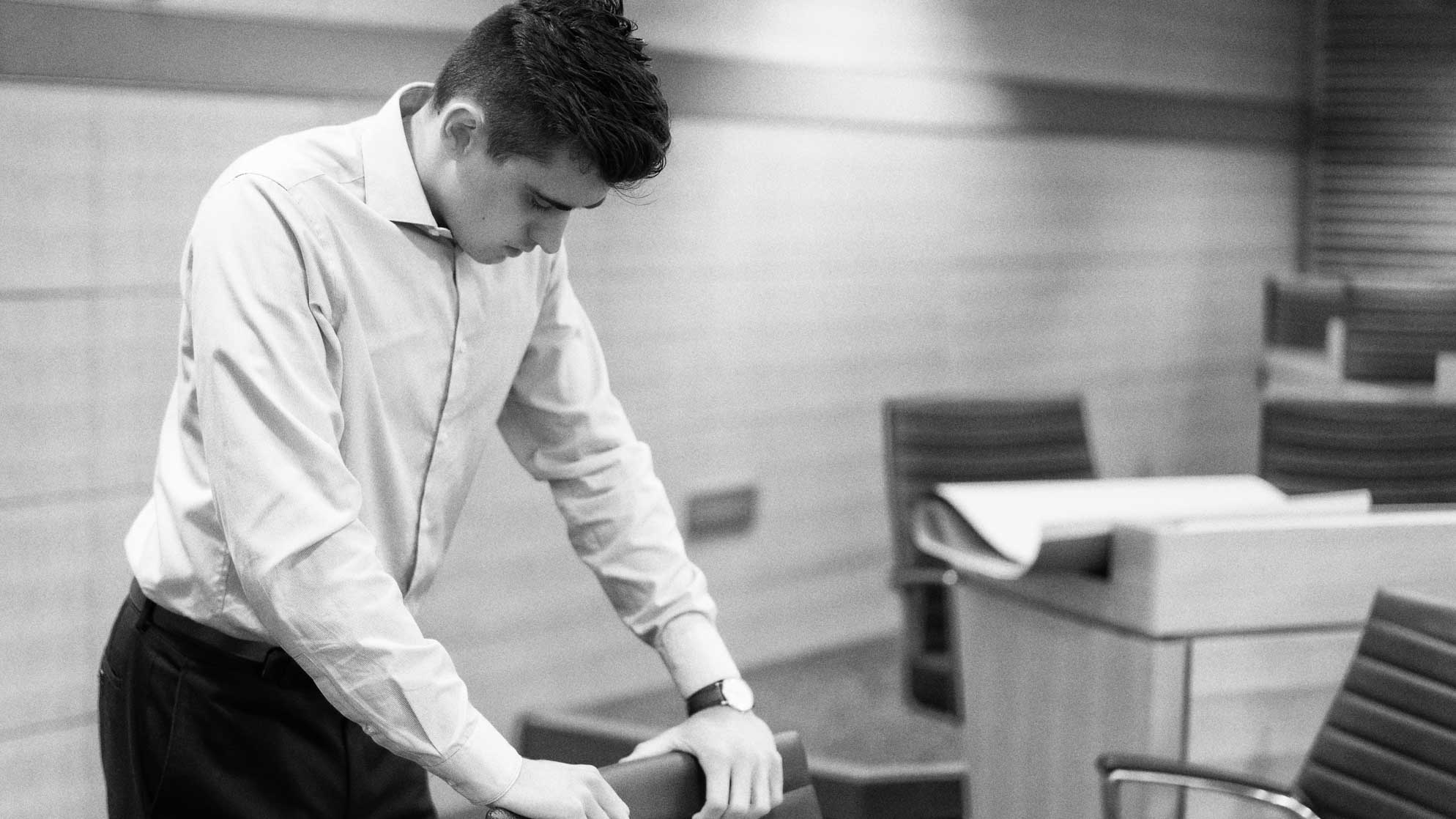- Future Students
- Current Students
- Faculty
- Staff
- Alumni
- Others
UofGH team qualifies for NIBS championship in Guatemala

A team of four University of Guelph-Humber Business students have qualified for the championship round of the Network of International Business Schools (NIBS) Worldwide Case Competition in Guatemala.
Conor Kelly, Cristina Morrone, Emma Lal and Pankush Jhamat will represent UofGH against 16 schools from all over the world at the championship in Guatemala City from February 25 to March 2. Other schools that qualified in what was the most competitive qualifying round in the event’s history include institutions from China, Ireland, Hungary, Netherlands, the U.K., Finland, the U.S. and Germany.
This is UofGH’s very first year of membership in NIBS, a global association of business schools that gathers together post-secondary institutions that share a focus on the internationalization of business and the globalization of the economy, and the fast success is a testament to the team’s diligent preparation.
“From the moment fall term exams ended, Conor, Cristina, Emma and Pankush were reading International Business textbooks and preparing for the competition. They are a determined group and want to compete against the best business programs in the world,” said Assistant Program Head of Business Justin Medak, who devotes significant time to training and coaching UofGH’s decorated case competition participants.

When most students went home for the holiday period, the competitors were still spending long hours preparing and presenting their solutions of trial cases to Medak.
On one afternoon in January preparing their fourth simulated case of the winter break, the group was tasked with crafting a global expansion strategy for a company situated in Dubai. In only a few hours, the group created a polished 20-minute presentation featuring a company, industry, market and financial analysis, along with a well thought-out implementation plan.
Afterward, the presentation was subject to rigorous constructive criticism before the group broke off with Medak for a further two-hour debrief.

“A lot of case studies are actually business scenarios that business professionals have had to deal with and problem-solve,” Morrone pointed out.
“Getting that experience now, looking at problems through a different lens and then providing these solutions is really helpful. I’ve learned things in case competitions before I’ve learned them in class, which has helped with studying and doing better in school.”
“I’d even say it’s great to apply what we learned in class in the competitions,” Lal added. “It’s great to see how these theories we learned can be used in a practical way.”

In the qualifying round for the Guatemalan competition, UofGH’s team was praised by judges for good issue identification, effective use of relevant tools of analysis, good financial projections and sensitive analysis.
The championship round promises a tough challenge, but the UofGH competitors feel more and more accustomed to performing under pressure.
“We’re so much more comfortable being in front of people now,” Kelly said. “We don’t get nervous about presenting in front of the class anymore because we know we’ve faced worse in these competitions. There’s not that nervous energy.
“And in terms of our careers moving forward, these competitions also bring the ability to network with potential future employers. If you’ve been selected to do this and you’re able to do it under tight pressure situations, there’s a lot of takeaways potential employers like to see and we can use to our advantage.”







